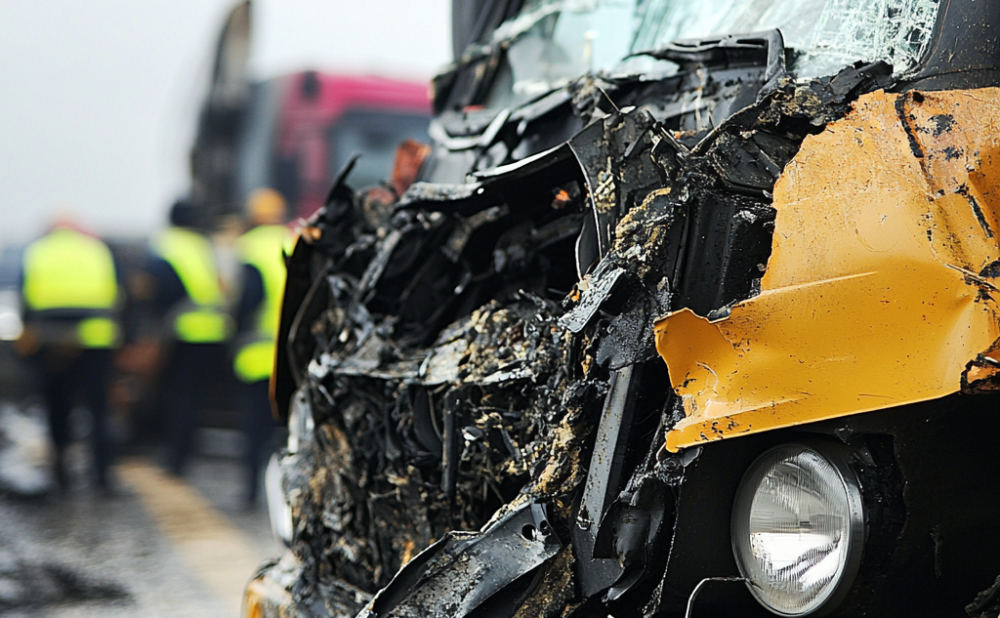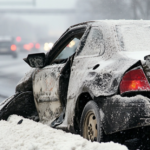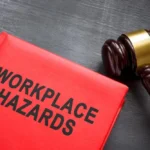Does an Accident in a Work Vehicle Affect Your Personal Insurance?
Accidents involving work vehicles can indeed impact your personal insurance premiums – but there are ways to mitigate these risks. It is crucial to understand your company’s insurance coverage and properly report an incident.
By following established procedures, practices, and protocols, and maintaining a good driving record, you can minimize potential insurance complications and protect your personal finances.
Why All the Confusion?
Many people are unaware that accidents involving work vehicles can have far-reaching consequences for their personal insurance. The confusion often arises due to the overlapping coverage provided by both personal and commercial policies.
Understanding the specific terms and conditions of each policy is essential to determine how liability and coverage are apportioned in such situations. This knowledge can help individuals avoid unexpected financial burdens and ensure proper claims handling.
How Insurance Works in These Situations
A thorough understanding of insurance principles is paramount when dealing with accidents involving work vehicles. Misunderstandings can lead to significant financial repercussions, such as unexpected out-of-pocket expenses or increased insurance premiums.
Additionally, legal complications can arise if claims are not handled correctly, potentially resulting in lawsuits or disputes. By familiarizing yourself with insurance terminology and procedures, you can make informed decisions, protect your personal finances, and avoid unnecessary legal entanglements.
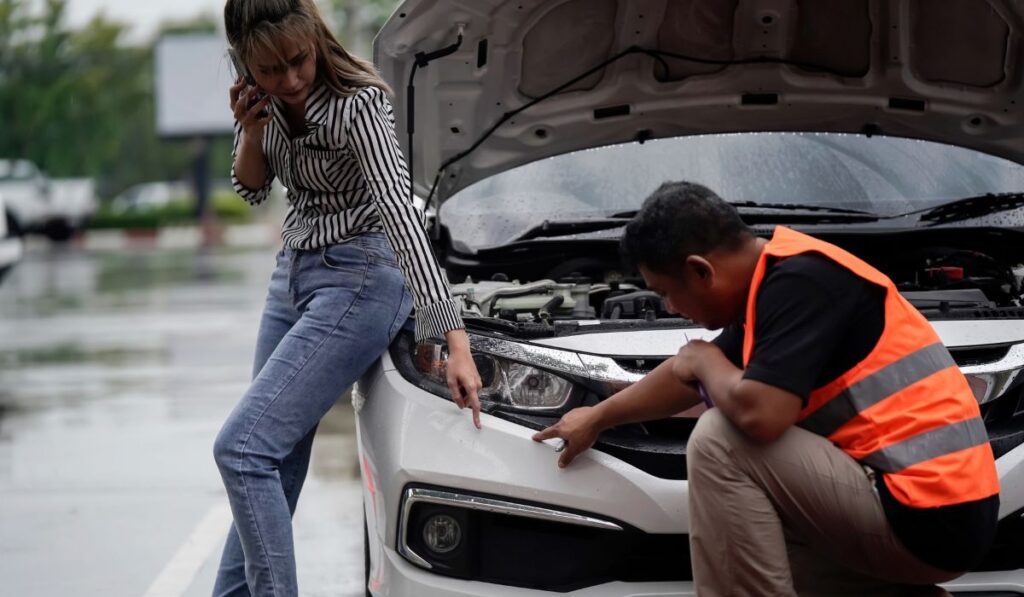
Work Vehicle Insurance vs. Personal Insurance
Understanding the Difference
What is a work vehicle and the types of insurance coverage
Work vehicles typically include any vehicles used for business purposes, such as company cars, vans, trucks, or any vehicle primarily used for work-related activities. Employers usually provide commercial insurance policies for these vehicles, which include coverage for liability, property damage, and other specific risks associated with operating a vehicle for business use.
How personal auto insurance generally applies only to private vehicles used for personal purposes
Personal auto insurance is designed to cover private vehicles used for personal purposes. It typically includes liability coverage for accidents involving others, property damage coverage, and comprehensive coverage for theft or damage from other causes.
Commercial Auto Insurance Coverage
What commercial auto insurance usually covers
Commercial auto insurance typically includes the following types of coverage:
- Property Damage: This covers damage to the work vehicle itself, as well as any property damaged in an accident.
- Liability: This covers bodily injury or property damage caused by the work vehicle to others.
- Medical Expenses: This covers medical expenses for anyone injured in an accident involving the work vehicle.
Employer responsibilities for providing insurance for work-related vehicles
Employers are generally responsible for providing adequate insurance coverage for their employees while they are using work vehicles. This includes ensuring that the vehicles are properly insured and that employees are aware of their coverage options.
Does An Accident in a Work Vehicle Affect Your Personal Insurance?
When It Does Not Affect Your Personal Insurance
In most cases, if an accident occurs in a work vehicle, your personal auto insurance won’t be involved. The responsibility for covering accidents involving work vehicles typically falls under the employer’s commercial insurance policy. Since work vehicles are insured separately with commercial auto insurance, any damages, liabilities, or medical expenses arising from an accident in a work vehicle are generally handled by the employer’s insurance coverage.
When It Might Affect Your Personal Insurance
There are situations where your personal insurance could potentially be affected by an accident in a work vehicle. For instance:
- Using a Work Vehicle for Personal Errands: If you use a work vehicle for personal errands and get into an accident during those times, there could be complexities in determining which insurance policy covers the damages.
- Unauthorized Use of a Work Vehicle: If you use the work vehicle outside of work hours without proper authorization or permission, it may lead to complications in insurance coverage and potential implications on both personal and commercial policies.
Understanding Insurance Overlaps
Conflicts or overlaps between commercial and personal insurance can indeed arise, especially in situations where the lines between work and personal use of a vehicle blur. In such cases, insurance companies may need to coordinate and communicate to determine the primary coverage for the accident. Typically, the insurance policies will be examined based on the specific circumstances of the accident to determine which policy should take precedence in providing coverage.
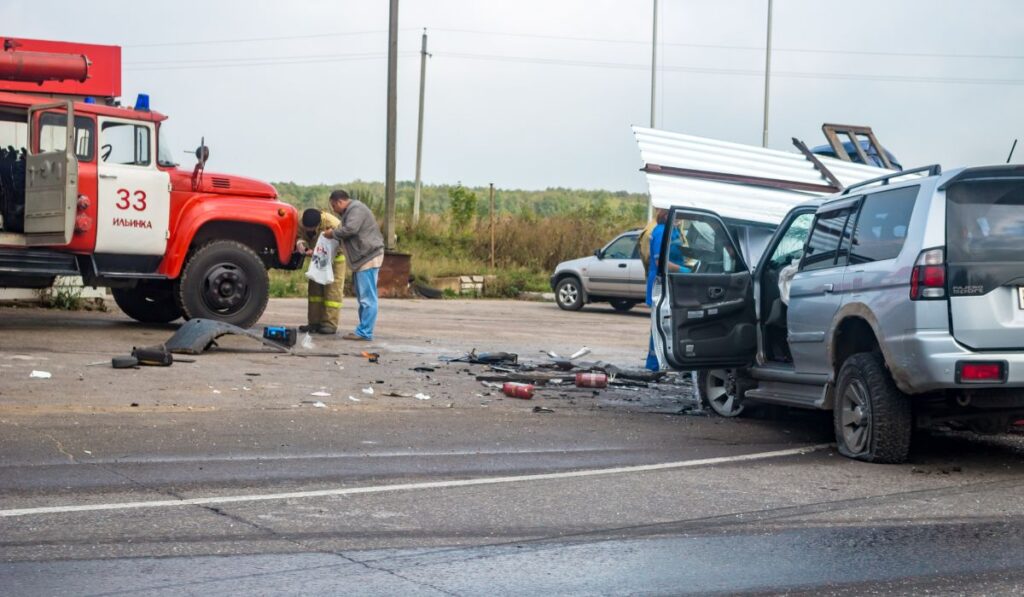
How to Handle an Accident in a Work Vehicle
Reporting the Accident
After an accident involving a work vehicle, it is crucial to take immediate action:
- Contact Your Employer: Inform your supervisor or human resources department about the accident as soon as possible. They will guide you through the appropriate procedures and ensure that any necessary reports are filed.
- Notify Law Enforcement: Contact local authorities to report the accident. They will investigate the incident and document the details.
- Gather Information: Collect relevant information, such as the names and contact details of other drivers involved, witnesses, and any law enforcement officers present. Note the location of the accident, the date, time, and any visible damage to the vehicles.
Filing an Insurance Claim
To file a claim under your employer’s commercial insurance policy, follow these general steps:
- Contact Your Employer’s Insurance Provider: Reach out to the insurance company directly or through your employer’s human resources department. They will provide you with the necessary forms and instructions.
- Provide Required Information: You will typically need to provide details about the accident, including the date, time, location, and the names of those involved. Your employer may also be required to provide additional information, such as the vehicle’s registration and insurance details.
- Cooperate with the Insurance Adjuster: An insurance adjuster will be assigned to investigate the claim. Cooperate fully with their inquiries and provide any requested documentation.
Accidents During Personal Use
If you were using the work vehicle for personal reasons at the time of the accident, it is important to understand how this might affect your insurance coverage. Both your employer’s commercial insurance and your personal auto insurance could be involved.
- Commercial Insurance: If the employer’s insurance policy covers accidents outside of work hours or for personal use, it may be responsible for the damages and injuries.
- Personal Insurance: In some cases, your personal auto insurance may be considered as a secondary source of coverage if the commercial insurance is insufficient.
Does an Accident in a Work Van Affect Personal Insurance? Let’s Dig In
While accidents involving work vehicles and vans are generally covered by commercial insurance, it’s important to remember that certain situations can potentially impact your personal insurance.
Understanding the specific terms and conditions of both your personal and employer’s insurance policies is crucial to avoid unexpected liabilities. By being aware of the potential consequences, you can take proactive steps to protect your financial well-being and ensure a smooth claims process in the event of an accident.
